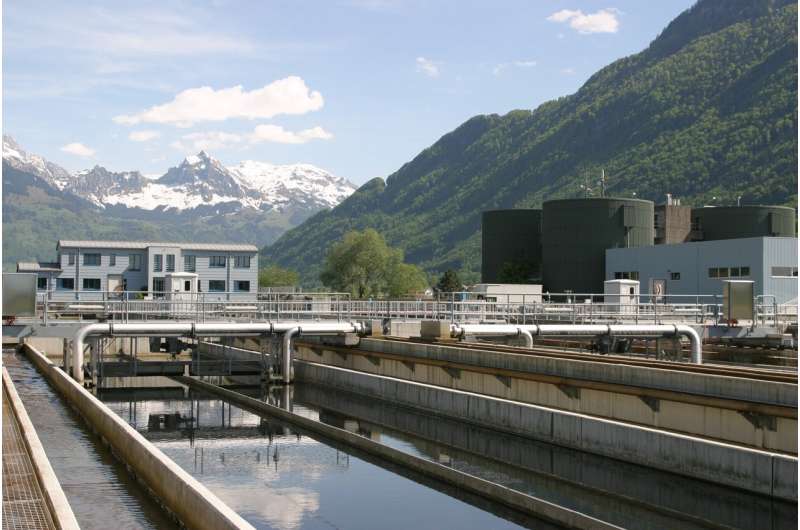This article has been reviewed according to Science X's editorial process and policies. Editors have highlighted the following attributes while ensuring the content's credibility:
fact-checked
peer-reviewed publication
trusted source
proofread
Wastewater monitoring could act as pandemic early warning system

An international collaboration involving Murdoch Children's Research Institute, The Rockefeller Foundation, Mathematica and the United Kingdom's Health Security Agency has shed light on how different countries monitor wastewater during infectious diseases outbreaks and where improvements could be made.
For the study, samples from treatment plants, rivers, wetlands and open drains were reported from 43 nations, spanning six continents, during 2022.
Murdoch Children's and University of Melbourne Professor Julie Bines, who worked with colleagues from Universitas Gadjah Mada in Yogjakarta, said the ongoing COVID-19 pandemic highlighted the need for robust and resilient disease surveillance systems.
"Despite decades of funding being directed into global infectious disease surveillance and warning signs that came from both traditional and non-traditional data sources, much of the world was caught off-guard by the rapid spread of SARS-CoV-2," she said.
"The pandemic could potentially have unfolded differently if there had been a dedicated surveillance system that was on constant alert, transmitting information about pathogens circulating in the environment across the globe. With such a system in place, experts may have identified SARS-CoV-2 far more quickly. Even if pandemic spread was inevitable, health-care systems could have better prepared for the fallout with more advanced notice, saving many lives."
The research, published in The Lancet Global Health, found monitoring for SARS-CoV-2 variants was more common in high income countries (59 percent) than lower middle-income countries (13 percent). Most data was shared internally and with partner organizations but not publicly and there were no comprehensive guidelines to promote ethical wastewater monitoring practices.
"We found testing for COVID-19 in wastewater was an effective and objective way to measure where the disease was spreading, with most samples processed in less than four days," Professor Bines said.
Professor Bines said with ongoing attention and investment, wastewater surveillance could be used as a global early warning system for outbreaks of infectious disease.
"To truly advance wastewater monitoring, we need a global framework that includes flexible testing, enhanced data capture and reporting, as well as ethical monitoring that does not further marginalize disadvantaged communities," she said.
"This way we could identify a range of current and future health threats like cholera, mpox (formerly monkeypox), influenza and typhoid, before they take hold of a community. But we need support to develop systems that can accurately capture, interpret and communicate data from different regions, especially vulnerable communities with limited infrastructure."
More information: Aparna Keshaviah et al, Wastewater monitoring can anchor global disease surveillance systems, The Lancet Global Health (2023). DOI: 10.1016/S2214-109X(23)00170-5




















